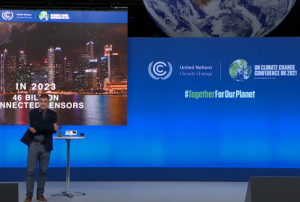One more time, the conclusions of the COP 26 are not satisfactory for the climatic change
The different countries have agreed on Glasgow Climate Pact to fight against climate change without solving the critical questions.
There were a lot of expectations in the 2021 United Climate Change Conference, known as COP26, to agree on different solutions to save the planet. But with the pass of time, the hope disappeared. Why? There was a lack of promises without concrete plans to achieve.
Saturday, November 13th, diplomatic from 200 countries closed an agreement to intensify the fight against climate change, The Glasgow Pact. It invites the different governments to come back with solid plans to stop the emissions from contributing to the planet heat and motivates the rich countries to duplicate the funding to protect the country’s most vulnerable.
The objective is to accelerate the fight against climate change and outline the basis for future financing, but sadly, without guaranteeing the Paris agreement’s goal of limiting global warming to +1.5°C.
This pact would have been supposed to eliminate carbon usage. However, the Chinese and Indian representant introduced a change at the last minute to ask for softening of the coal elimination. As a result, it changed the article that appears «phase out» coal for «phase down» coal.

Which are the conclusions of the 2021 United Climate Change Conference?
The time to act is being exhausted.
The agreement establishes a consensus that all the countries must do more to prevent the world temperature increase. It outlines specific measures, from reducing to half of the global carbon dioxide emissions to stop methane emissions in 2030. Moreover, it establishes new laws to make responsible the countries in the function of they reach it or not.
Who must make the cutbacks, and how many?
The final agreement let without answering the crucial question of how many emissions must reduce each country during the following decade and in how much time.
Rich countries represent only 12 % of the world population, but they are responsible for 50 % of the greenhouse gases related to global heating.
The USA president has insisted that the emerging countries must accelerate the step to not generate energy by coal or other fossil fuels. However, these countries replicate that don’t have enough funding to make it. And the COP26 agreement continues without giving the emerging countries the financing needed to use clean energies and fight against climatic disasters.
A mechanism for losses and damage
It was one of the strong arguments of the conference. It was difficult to negotiate how to regulate the world market of carbon compensations. And it difficults more and more than a company or a country compensates its emissions to pay to a third to reduce them. One of the complicated topics is how to register these global interchanges so that any reduction will be not overvalued, or it counts twice.
The vulnerable countries insist that the rich must give them a part of their transaction earnings in the carbon market to help acquire resilience against climate change.
There were other agreements like EEUU and China pact, or about the Deforestation and Methane, or the pact to reach zero emissions in India.
